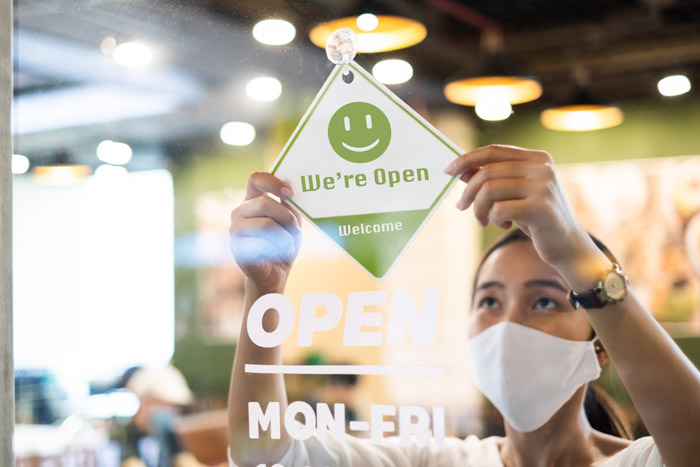There is a saying that once is chance, twice is coincidence, thrice is a pattern. I have learned to take that saying to heart at PIA Northeast.
We receive hundreds—if not thousands of—calls from members every year. Whenever three members ask the same question, my eyebrow raises. Recently, I received three calls from three different PIA members in one day. They each wanted to know what a business’s liability would be if, after it reopened, customers claimed they contracted COVID-19 while at the business. More specifically, they wanted to know if there would be insurance coverage under a commercial general liability policy for businesses in the event of claims by customers that they contracted COVID-19 at the businesses.
As is usually the case, the answer of whether there is coverage is not necessarily a straightforward one. For an insurance policy to respond a few factors must be met. First, there must be an occurrence on the insured property that results in bodily injury1 or property damage. In addition, the injury or damage must be the result of a covered peril under the policy.
First things first. Is a virus a covered peril under a commercial general liability policy? It depends. The general rule in insurance is that an insurance policy provides coverage for anything that it does not specifically exclude. So, perhaps paradoxically, the best place to look for coverage is in the exclusions of a policy.
The first exclusion that you may see in a CGL policy is what is referred to as the mold exclusion. As the name suggests, it excludes any injury or property damage that arises because of exposure to bacteria or mold. However, a virus is not included in the definition of either bacteria or mold. If a CGL policy only had the mold exclusion, it may respond to a claim that a customer contracted COVID-19 when he or she was inside a business.
However, you should be aware of another exclusion: the communicable diseases exclusion. Under this exclusion, any bodily injury or property damage that arises from the transmission of a communicable disease—of which a virus like COVID-19 is clearly included—would not be a covered loss.
In summary, if a CGL policy only has a mold exclusion there is likely coverage. However, if a communicable disease exclusion is present coverage will not be extended.
Second, is whether the virus was spread because of an occurrence. In layman’s terms an occurrence is an accident. While this seems straightforward, however, it is anything but. Attorneys have purchased many second homes and sports cars by making careers out of arguing what an accident is and is not. Generally, the answer is fact-specific, and could be the subject of its own article. Also, it is not that important to this overall conversation as there is still one more factor to weigh.
Third, that factor is whether it can be proven that the person contracted the virus while at the business. This is difficult to prove during the best of times. During a pandemic when the virus is widespread, and could be contracted anywhere, it is essentially impossible. It is likely that for this reason there will be no coverage. It also means that a business will be unlikely to be liable to the customer. That is not to say that a business is completely off the hook.
Right now, both the state and federal governments are releasing guidance on the steps that businesses must take to reopen safely and protect customer health. If a business ignores this guidance, it is much more likely that liability could follow. For example, an attorney could make a much more compelling case that the virus was contracted at that particular business, especially if other businesses are more closely adhering to safety procedures. There also is the human element. Judges or juries are much less likely to be sympathetic to businesses that have ignored safety guidelines than to those businesses that are doing all they can to keep customers safe.
The moral of the story is there is unlikely to be coverage in a CGL policy for a COVID-19-related claim, either because of an exclusion or because of the impossibility of proving the disease was contracted on the insured property. Further, that last point tips the scales heavily in favor of a business escaping liability.
However, it is incumbent that businesses follow the proper safety procedures when operating after reopening. Failure to do so could tip the scales in favor of the customer.
1 It is well settled that a virus can cause bodily injury. For the sake of brevity, I won’t discuss the bodily injury aspect any further.

Bradford J. Lachut, Esq.
Bradford J. Lachut, Esq., joined PIA as government affairs counsel for the Government & Industry Affairs Department in 2012 and then, after a four-month leave, he returned to the association in 2018 as director of government & industry affairs responsible for all legal, government relations and insurance industry liaison programs for the five state associations. Prior to PIA, Brad worked as an attorney for Steven J. Baum PC, in Amherst, and as an associate attorney for the law office of James Morris in Buffalo. He also spent time serving as senior manager of government affairs as the Buffalo Niagara Partnership, a chamber of commerce serving the Buffalo, N.Y., region, his hometown. He received his juris doctorate from Buffalo Law School and his Bachelor of Science degree in Government and Politics from Utica College, Utica, N.Y. Brad is an active Mason and Shriner.





